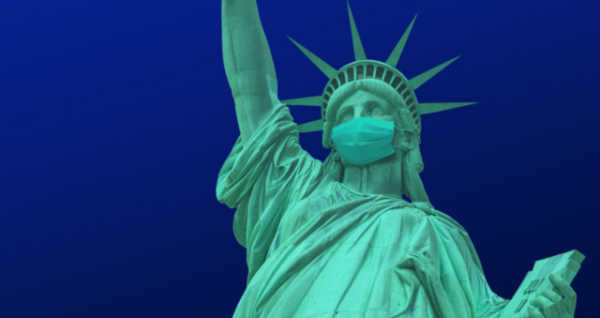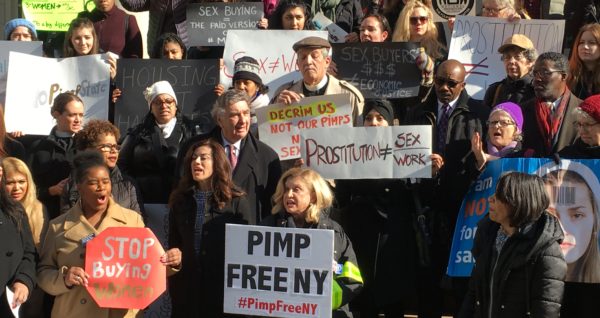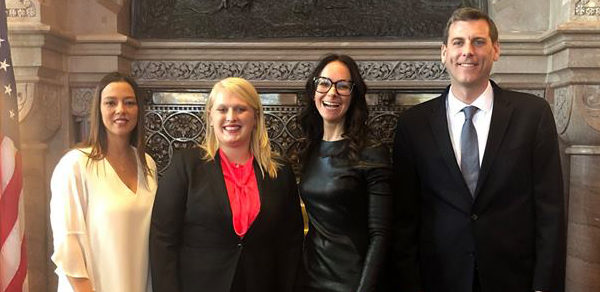How we’re supporting survivors and staff during this public health crisis.
Dear Sanctuary Community,
As the coronavirus spreads and fear increases, I wanted to share how we, at Sanctuary for Families, are approaching this crisis. This blog will be updated as the situation in New York evolves and our programs adapt.
COVID-19 impacts all of us but for victims of gender-based violence, the effects are compounded by the numerous challenges they already face.
- Calls to self-quarantine may deter victims from seeking help, compelling them to cope at a time when stress levels are heightened.
- Economic stress due to layoffs and lack of work elevates the risk of domestic violence
- School closings are forcing many of our clients who are parents to secure childcare so they can continue to work, often for employers in the service-sector who offer little flexibility or sick time.
- Immigrant survivors, who are already reluctant to access public services for fear of deportation, may avoid reporting symptoms or visiting Urgent Care. Those from countries with higher rates of infection may also experience more discrimination.
- Families living in shelter or over-crowded apartment complexes with more shared spaces are having a harder time with social distancing.
Our clinical, shelter, economic empowerment, and legal services are critical for survivors, and Sanctuary is committed to ensuring they continue to have the access they need.
Program Updates
General
- The health and safety of our clients and staff are our top priority.
- In the interest of public health and safety, all staff whose job responsibilities allow are working remotely.
- Program staff throughout the agency are reaching out to clients and providing services remotely, including counseling and legal assistance.
- Our main office, shelters, and the EMPOWER Center remain open with limited staff.
- Our hotlines have expanded hours, 9am – 5pm Monday through Friday.
- The Family Justice Centers are closed but continue to refer survivors seeking help to Sanctuary and other NYC providers.
Counseling
- Counselors, case managers and support staff are reaching out to all clients on their caseload to offer phone sessions.
- Counselors are offering traditional counseling sessions through a HIPPA compliant tele-counseling platform to clients interested and able to participate.
- Counselors are also offering more frequent phone check-ins to assess how survivors are coping with the pandemic.
- Staff are safety planning with high risk clients and are in contact with our residential team to ensure we are up to date on shelter vacancies as emergencies arise.
Shelter
- We are following the City’s guidelines for shelters.
- Staff continue to go in person to the dwellings to meet with clients and address important case management needs like referrals for public assistance, completion of housing applications, legal referrals etc.
- Face masks are being distributed, food is being stockpiled, and our operations team is cleaning frequently.
- Our childcare and after-care staff are working with parents to engage their children who are out of school.
Economic Empowerment Program (EEP)
- Survivors in the current EEP cohort are receiving laptops and hotspots so they can continue their training remotely.
- Staff are providing crisis intervention services and are safety planning with high risk clients.
- Staff are checking in on survivors in internships, if they’re able to work remotely, and those who been placed in jobs to ensure they are being supported.
Legal
- All temporary orders of protection that have been issued by criminal and civil courts have been extended until the next court date.
- Emergency Family Court hearings are being held virtually as of Thursday, March 26.
- Eviction proceedings and all pending eviction orders have been suspended.
- New York City’s immigration Courts remain open and filing deadlines for detained and non-detained cases remain in place.
- Attorneys are struggling to put filings together remotely and are risking exposure by going to the post office or appearing in court.
- USCIS has temporarily suspended routine in-person services, at least through May 3.
Our team is closely monitoring the virus’ spread and is developing contingency plans to protect staff and clients should the situation in New York continue to escalate.
We are also taking measures to minimize contact within our broader Sanctuary community. At this time, we are refraining from on-boarding new volunteers and accepting in-kind donations.
How You Can Help
Donate
If you would like to support survivors during this challenging time, please consider a making a donation to general donation page or our Fund for Vulnerable Families.
Your support will cover the cost of:
- Basic hygiene items and help us meet the emerging needs of our clients
- Food for our shelters and survivors who are struggling to cover the costs of stockpiling essentials
- Remote learning platforms, laptops, and wifi hotspots for survivors
- Video conferencing tools for our service providing staff
- Deep cleanings which will help us protect our staff and clients

Help Spread the Word
Visit our COVID-19 Resources & Information page
We’d also appreciate any resources you see that may be of use to survivors of domestic violence, trafficking, and related forms of gender-violence. Email Info@sffny.org or tag us on social media!
We Couldn’t Do This Without You
Thanks to people like you, Sanctuary has consistently supported survivors in times of crisis throughout our 35-year history. We are confident that this will be no different. By staying vigilant, taking the necessary precautions, and supporting each other, we will get through this together.
Wishing you and your loved ones health and safety.
Warmly,
Hon. Judy H. Kluger
Executive Director





